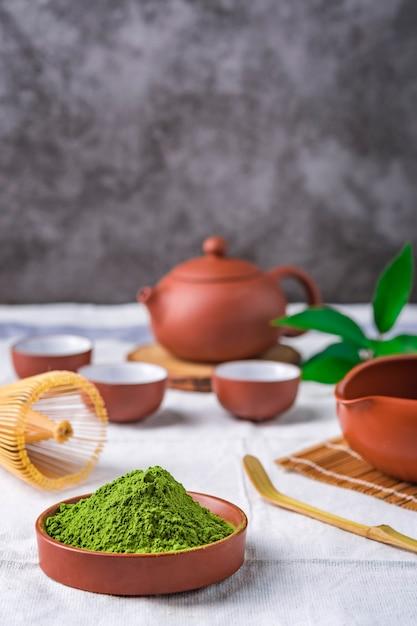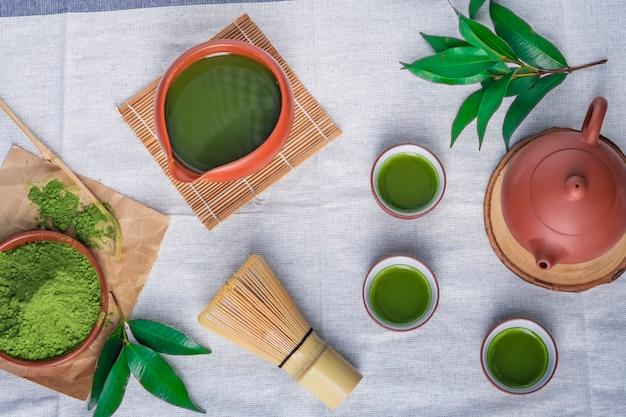Do you love cooking with ceramic cookware but aren’t sure if it’s safe to use a wire whisk? Well, you’ve come to the right place! In this blog post, we will explore the topic of using wire whisks in ceramic cookware and provide you with all the information you need to know.
Ceramic cookware has gained popularity in recent years for its durability, non-stick properties, and aesthetic appeal. But when it comes to utensils, it’s essential to understand which ones are safe to use. The use of metal utensils in ceramic cookware has raised many questions among cooking enthusiasts. Can you use a wire whisk? Can you use a metal spoon or spatula? These are some of the common queries we’ll answer in this blog post.
So, if you’re eager to find out if wire whisks are compatible with ceramic cookware or if you have any related questions, keep reading! We’ll address all your concerns and help you make informed decisions in the kitchen.
Can You Use a Wire Whisk in Ceramic
If you’ve ever found yourself standing in your kitchen, whisk in hand, wondering if it’s safe to use that trusty wire whisk on your beautiful ceramic cookware, you’re not alone. It’s a question that many home cooks ponder, and today, we’re here to give you the 2023 answer.
What’s the Deal with Ceramic Cookware
Ceramic cookware has become increasingly popular in recent years. Its non-stick properties, durability, and aesthetic appeal make it a sought-after choice for many culinary enthusiasts. But when it comes to using a wire whisk, things can get a little tricky.
The Delicate Nature of Ceramic
Ceramic cookware, while robust, can be quite delicate. Unlike metal or stainless steel pans, ceramic is more prone to scratches, chips, and cracks. Using a wire whisk with metal tines could potentially damage the surface of your cookware, leading to reduced longevity and compromised performance.
Safer Alternatives to Wire Whisks
But fear not, fellow kitchen warriors! There are alternative whisk options that are safer for your beloved ceramic cookware. Consider using a silicone whisk, which has soft, flexible tines that won’t harm the surface. Silicone whisks are gentle yet effective at whipping up fluffy eggs, smooth sauces, and perfectly emulsified dressings.
Silicone Whisks: The Unsung Heroes
Silicone whisk, you ask? Yes, silicone whisks are the heroes we never knew we needed in our kitchens. Made from food-grade silicone, these whisks provide the perfect balance of flexibility and durability. You won’t have to worry about scratching or damaging your ceramic surfaces, and they come in a variety of fun colors to brighten up your cooking space.
A Whisk for Every Occasion
Silicone whisks are suitable for a wide range of cooking tasks. From beating egg whites into stiff peaks to incorporating air into pancake batter, a silicone whisk will become your new best friend. Plus, they’re easy to clean; just give your whisk a good rinse or toss it in the dishwasher for effortless maintenance.
Don’t Take the Risk!
So, to summarize, while using a wire whisk on ceramic cookware may seem like a tempting shortcut, it’s best to err on the side of caution. Opt for a silicone whisk instead, and you’ll preserve the integrity of your ceramic pots and pans, ensuring they last for many delicious meals to come.
Remember, happy whisking makes for happy cooking!
FAQ: Can You Use a Wire Whisk in Ceramic
Ceramic cookware has gained popularity in recent years due to its durability and non-stick properties. However, when it comes to choosing the right utensils, there can be some confusion. One common question is whether it is safe to use a wire whisk in ceramic cookware. In this FAQ-style subsection, we will address the most frequently asked questions regarding the use of metal utensils, specifically wire whisks, with ceramic cookware. So, grab your favorite beverage and let’s dive in!
Can I Use Metal on Ceramic Cast Iron
No, it’s not recommended to use metal utensils on ceramic cast iron. Ceramic cast iron cookware is known for its delicate and non-stick surface. Using metal utensils can scratch the ceramic coating, compromising its integrity. It’s best to stick to non-metallic utensils, such as silicone or wooden spoons, when cooking with ceramic cast iron.
Can I Use a Metal Whisk in a Ceramic Dutch Oven
Using a metal whisk in a ceramic Dutch oven can be risky. The wires of the whisk can potentially scratch the ceramic surface, leading to damage and reduced non-stick performance. Opt for a silicone or nylon whisk instead to avoid any unwanted mishaps while whisking up your culinary delights.
Why Is My Dutch Oven Burning on the Bottom
If you are experiencing burning on the bottom of your Dutch oven, it could be due to a few factors. One possibility is overheating. Ceramic Dutch ovens tend to retain heat well, and high temperatures can cause food to stick and burn. Another reason could be the type of stove you’re using. While ceramic cooktops are popular, they require proper heat distribution and temperature control to prevent burning. Ensure you are using the appropriate heat setting for your Dutch oven to avoid scorching the bottom.
What Type of Utensils Do You Use on Ceramic
When it comes to using utensils on ceramic cookware, it’s essential to choose the right materials. Opt for non-metallic utensils, such as silicone, nylon, or wooden tools. These materials are gentle on the ceramic surface and help preserve the non-stick properties of the cookware. So, leave your metal utensils in the drawer and embrace the non-metallic alternatives for a scratch-free cooking experience.
Does Metal Scratch Ceramic
Yes, metal utensils can scratch ceramic surfaces. Ceramic cookware is generally coated with a protective layer that can be damaged by metal utensils. Scratches not only compromise the non-stick properties but can also create areas where food can stick and burn. To keep your ceramic cookware in its best condition, it’s best to stick to utensils made of non-metallic materials.
Can You Use Metal Utensils on Porcelain Cookware
Using metal utensils on porcelain cookware is not recommended. Porcelain, like ceramic, is prone to scratching when exposed to metal utensils. To avoid damaging the delicate porcelain coating, opt for utensils made of silicone, nylon, or wood.
Can You Use Stainless Steel on Ceramic Pans
Stainless steel utensils can potentially scratch the surface of ceramic pans. While ceramic cookware is durable, metal utensils, including stainless steel, can damage its non-stick coating. To preserve the longevity of your ceramic pans, it’s best to use utensils made of non-metallic materials like silicone or wood.
How Do You Keep Ceramic Pans from Sticking
To prevent your food from sticking to ceramic pans, there are a few simple steps you can follow. First, ensure the pan is properly preheated before adding any ingredients. Adding cold food to a hot pan can increase the chances of sticking. Additionally, using a small amount of oil or butter can help create a non-stick surface. Finally, using non-metallic utensils will prevent any scratches that could lead to sticking. By following these tips, you can enjoy a fuss-free cooking experience with your ceramic pans.
Why Does Everything Stick to My Le Creuset
If you’re experiencing food sticking to your Le Creuset, there may be a few reasons for this. First, ensure the pan is properly preheated before adding any ingredients. Adding cold food to a hot pan can increase the chances of sticking. Also, make sure you’re using a sufficient amount of fat or oil to create a non-stick surface. Finally, avoid using metal utensils on your Le Creuset, as they can scratch the enamel coating, leading to sticking issues. Switch to non-metallic utensils, and you’ll be on your way to enjoying perfectly cooked meals that effortlessly slide off your Le Creuset.
Can You Use a Metal Spoon on an Enamel Dutch Oven
It’s best to avoid using a metal spoon on an enamel Dutch oven. The enamel coating on these pots can chip or scratch when exposed to metal utensils, compromising its non-stick properties. To ensure the longevity of your enamel Dutch oven, reach for a wooden or silicone spoon instead.
Can I Use a Steel Spatula on Cast Iron
While cast iron can handle more rugged cooking utensils, it’s still not recommended to use a steel spatula. Steel spatulas can potentially scrape off the seasoning layer on your cast iron, which is essential for its non-stick properties. Instead, opt for utensils made of wood or heat-resistant silicone to protect and maintain the integrity of your cast iron cookware.
What Kind of Spatula Do You Use on a Ceramic Pan
When it comes to ceramic pans, it’s best to choose a non-metallic spatula. Silicone or heat-resistant nylon spatulas are gentle on the ceramic surface, preventing any potential scratches while ensuring easy food release. So, ditch the metal spatula and upgrade to a non-metal alternative to keep your ceramic pans in pristine condition.
Can You Use a Metal Whisk on Enameled Cast Iron
Using a metal whisk on enameled cast iron is not recommended. The delicate enamel coating can be easily scratched by the wires of a metal whisk, potentially compromising the non-stick properties of the cast iron. Instead, reach for a silicone or nylon whisk to whip up your culinary creations without any worry of damaging your cookware.
Can You Put a Dutch Oven in the Oven with the Lid On
Absolutely! Dutch ovens are versatile pieces of cookware that can be used both on the stovetop and in the oven. When using a Dutch oven in the oven, it’s essential to ensure that both the pot and its lid are oven-safe. Simply preheat your oven, place your ingredients in the Dutch oven, cover it with the lid, and let it work its magic.
Can You Use Metal Utensils on a Dutch Oven
While Dutch ovens are known for their durability, it’s still best to avoid using metal utensils on them. Metal utensils can potentially scratch the enamel coating, compromising its non-stick properties and potentially leading to food sticking and burning. Opt for non-metallic utensils to protect your Dutch oven and ensure a pleasant cooking experience.
Can I Use Metal Tools on Le Creuset
No, it’s not recommended to use metal tools on Le Creuset cookware. The enamel coating on Le Creuset can be easily scratched by metal utensils, reducing its non-stick performance and compromising its longevity. For a worry-free cooking experience, stick to non-metallic tools, such as wooden or silicone utensils, when using your beloved Le Creuset cookware.
Can You Use a Hand Mixer in Le Creuset
It’s not recommended to use a hand mixer in Le Creuset cookware. The powerful beaters of a hand mixer can damage the delicate enamel coating of the pot, negating its non-stick properties. When it comes to mixing in Le Creuset, rely on manual methods or use an alternative mixing bowl specifically designed for use with hand mixers.
Can You Use Metal on Porcelain Enameled Cast Iron
Using metal on porcelain enameled cast iron is not advisable. The porcelain enamel coating can be easily scratched by metal utensils, causing damage to its non-stick properties. To ensure the longevity of your porcelain enameled cast iron cookware, opt for non-metallic utensils made of silicone, nylon, or wood.
When it comes to using a wire whisk or other metal utensils with ceramic cookware, caution is key. To preserve the non-stick properties and longevity of your ceramic cookware, it’s best to stick to non-metallic utensils, such as silicone, nylon, or wood. By following these guidelines, you can enjoy your ceramic cookware in all its non-stick glory without any scratching mishaps. Happy cooking!

